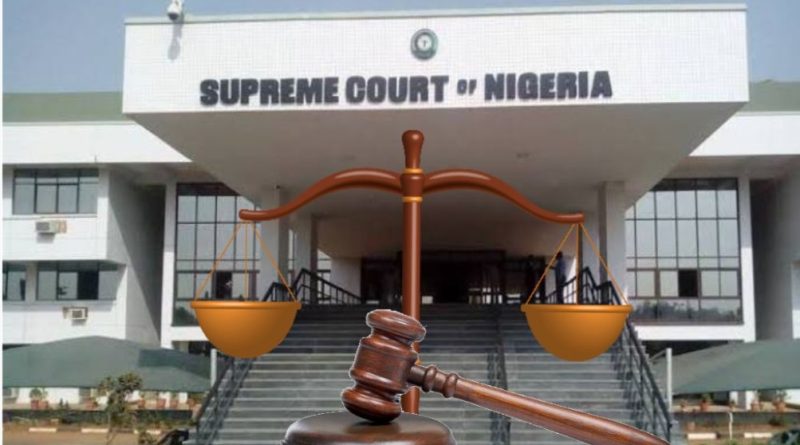Supreme Court nullifies Emefiele’s flawed and dictatorial Naira redesign policy: Old Naira notes to remain legal tender till Dec 31, 2023 – Chimaobi Agwu
The CBN and Federal Government’s strategy to redesign the naira was today declared invalid by the Supreme Court because it violated the 1999 Constitution of Nigeria. Old N200, N500, and N1,000 notes must continue to be in use through December 31, 2023, the court said.
Delivering the judgement, Justice Emmanuel Agbim, ruled that the preliminary objections of the defendants, who include the Attorney General of the Federation, the Bayelsa and Edo state governments, are overruled since the court has the authority to hear the case.
With foreign exchange speculation on the rise, among other things, including the dwindling value of the Naira vis-a-vis the major global currencies, the Central Bank of Nigeria launched the naira redesign initiative to minimize the amount of local currency outside the banking system.
Over the past three months, however, the policy has introduced economic sufferings and hardships across the country, the such that the citizens cannot understand. Economists have projected that this will affect the economic fortunes of the nation in 2023. Some very active sectors like mobile money operations (i.e. POS operators) are so hard hit that they have being temporarily put out of business while rural farmers watch as their produce rot away before their eyes due to low demand occasioned by lack of cash by citizens.
The CBN and the Federal Government also failed miserably in the naira redesign policy and in its implementation in not involving the microfinance banks who are in the last mile banking delivery services in the country. Besides, the Federal Ministry of Finance was kept in the dark by both the CBN and the Presidency on the policy.
Before now, there were outcries and pleas from various segments of the population, appealing to the CBN Governor, Godwin Emefiele and the President, Mohammadu Buhari, to reconsider the policy in the light of the untold sufferings on the people and extend the policy implementation to between three and six months. All the pleas fell on deaf ears as the CBN Governor contends that nobody can shift the implementation. In the midst of the debate, some State Governors defied the CBN and ordered their citizens to go ahead and keep transacting with the old naira notes as legal tender.
Given though the CBN Statute explicitly declares the CBN’s independence from other institutions, some economists continue to feel that the supreme court’s decision to interfere with monetary policy will have adverse impacts on market perception in the short to long term.
Nonetheless, the court found that the conflict between the Federal Government and states must involve law or facts, citing Section 23(2)1 of the Constitution. The supreme court further ruled that President Muhammadu Buhari acknowledged the policy’s flaws and difficulties in his broadcast.
According to the court, the strategy has caused some people to engage in barter trade in the modern day in an effort to survive. The court further stated that the President’s defiance of the decree from February 8 is evidence of dictatorship.
Remember that sixteen Federation states filed a lawsuit to contest the legitimacy of the policy’s establishment. The initial lawsuit filed by the states of Kaduna, Kogi, and Zamfara has been designated as the first matter on the cause list for a decision.
On February 22, Judge John Inyang Okoro, who presided over a seven-member panel of Justices, set today for the court to announce its ruling on the lawsuit. The 16 states, led by Kaduna, Kogi, and Zamfara, are asking the supreme court to nullify and set down the policy because it is putting innocent Nigerians through hardship.
They demanded that Buhari’s order be revoked on the grounds that the President had introduced and carried out the policy without consulting the CBN.
On Friday, Kaduna State Governor Nasir El-Rufai and his counterpart from Kogi State, Yahaya Bello, were present in court to see the verdict. At the previous hearing, the two governors were also present in court. Bello Matawalle, the governor of Zamfara State, was also present in court on Friday.
After complaints from numerous Nigerians about the lack of replacement notes available to bank customers, the CBN extended the deadline for the exchange of old N200, N500, and N1,000 notes from January 31 to February 10.
Subsequently, by April 10, 2023, President Muhammadu Buhari gave the Central Bank of Nigeria (CBN) the order to put the old N200 notes into circulation to coexist alongside the new N200, N500, and N1,000 banknotes for 60 days. Also, he stated that the old N500 and N1,000 bills are no longer valid in Nigeria.
Top Senior Attorneys of Nigeria, including Mike Ozekhome and Femi Falana, have criticized the President’s action and stated that he is unable to overrule the supreme court of the nation in this case.
Additionally, three state governors—Kaduna, Zamfara, and Kogi—have launched a new lawsuit for contempt of court against Malami and CBN Governor Godwin Emefiele for allegedly disobeying the Supreme Court’s decision regarding the old naira notes.
118 Words
Changed Words
Structural Changes
Longest Unchanged Words




